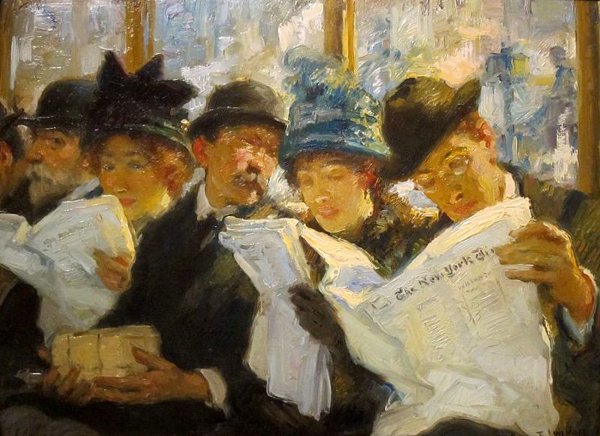A few recommended reads for you as we (hopefully) start bunkering down again to beat the coronavirus.
In the U.S., one of the biggest obstacles in fighting the coronavirus is lack of political leadership, particularly the obstruction of Donald Trump. Countries with competent leadership share a different challenge with us: COVID-denialism. In Australia, the United States, and other places, COVID-denial is central to a confederacy between right-wing conspiracy theorists and assumedly-progressive members of the “wellness†industry. This axis is the focus of “‘Evil forces’: how Covid-19 paranoia united the wellness industry and rightwing conspiracy theorists†by Brigid Delaney (The Guardian). Delany’s reporting on this shitshow is very good. She is also an excellent explainer who gets the essence of the problem (“Like many conspiracies – or even religions – the beliefs are part of a closed system that is engineered to provide answers to our most maddening mysteries but also designed to allow no room for questioning and dissent“). If you want some insight into COVID-denialists, anti-vaxxers, and conspiracy theorists, this is an excellent read.
Want know why closed-system irrationality is important to counter? Check out this May article by a trio of Washington Post reporters: “Polio was almost eradicated. Then came the coronavirus. Then came a threat from President Trump.†The near-eradication of polio, a life-and-body crippling disease, is one of the success stories of immunology and modern medicine. Over the last two decades, polio has started to come back in poorer countries, fueled by two things: Armed conflict, which keeps health workers from traveling to people who need immunization, and the anti-vaccine movement, whose conspiracy theories have turned people and even towns against health workers. The situation got one-hundred times worse by Donald Trump’s “America First†policy. Even before Trump used coronavirus to try to back out of the World Health Organization, he ordered cuts to foreign aid, including contributions to international health campaigns. Whether by chance or intent, those programs that provide polio and other vaccines to people in underdeveloped countries got hit hardest.
Regarding coronavirus, no one in the U.S. is more screwed than prisoners. Warehoused in facilities where social distancing and stepped-up hygiene is impossible, prisoners are sitting ducks for infection. When they get the virus, they receive substandard medical care, if they aren’t neglected. Things have gotten so bad inside that prisoners are taking big risks to get the word out. We now know that many prisons and jails are COVID-hotspots thanks to prisoners who’ve broken through prison censorship. But too often, we learn too late.
A couple months ago, a Facebook “friend†tipped me to the story of Alan Hurwitz, a 79-year old federal prisoner who was 10-years into a sentence for robbing a bank. He was in bad health and, to avoid catching the virus, sought early release. I lacked the resources to do a story on a federal inmate housed in a prison across the country; so, I pointed my contact to journalists who could help, with advice on how to pitch the story. The Marshall Project picked it up. Joseph Neff and Dan Kane tell Alan’s story, his fight to free himself from a COVID-hot zone, and how his release did not have a happy ending (“Freed From Prison, Dead from COVID-19, Not Even Countedâ€Â). Read this and know that Alan is not the exception here; what happened to him is not a fluke.
Back in June, some folks in a small Ohio town called Bethel decided to hold a Black Lives Matter solidarity rally in their dinky downtown. The making of the event was the kind of story that gives people hope that this country can do better: Mostly white folks who feel a connection with the greater movement, not in self-interest or because they personally know BLM activists or someone who was killed by the police, but because they see themselves as part of a greater movement that wants the country to change. White people doing the right thing shouldn’t be the main story, but it is a story that needs to be told, if only to show that we outnumber the bigots and that we can make progress.
So, the good people of Bethel take to Facebook to publicize their event and find themselves swarmed by a violent far-right mob. Trump-supporters, bikers, militia members, and assorted right-wingers attacked a peaceful gathering of 100 sign-waving people, while the local police stood there and watched. BuzzFeed’s Anna Helen Petersen explores the question “What Happened In Bethel, Ohio?†and one of the things she finds is that the death of local media has consequences, and, thus, what seems to be a local story is really something that concerns us all.
Another interesting story on the media is a New Yorker piece titled, “Slate Star Codex and Silicon Valley’s War Against the Media.†Back in June, Slate Star Codex, a very popular Silicon Valley blog done by a guy who writes under the name Scott Alexander, went off line. Alexander snuffed the blog because he was worried that a New York Times reporter was going to reveal his true name, which might lead to work problems and/or internet harassment, something Alexander wrote in his final blog post. Though Alexander took his own blog down, without outside pressure, his Silicon Valley fans went apeshit and attacked the media, engaging in the kind of aggressive tantrum of bullying that privileged tech elite are known for.
Ironically, the ugly tech blowback is exactly the kind of thing that Alexander asked people not to do. It is also something that he railed against in his blog. Alexander also copped to being a willing subject of the Times’ reporting (as of now the article remains spiked), knowing that the reporter was under no obligation to protect his identity*. While Alexander admits to being naïve and sloppy, his supporters see only a villain in the New York Times and have broadened their attack the media in general (that the vibe around this is reminiscent of Peter Theil’s attack on Gawker isn’t a shock. Many of the players in that fiasco are now Alexander’s defenders).
Codex fans – so-called “free speech advocates†– rage over standard journalistic practices such as interviewing people who know the subject, researching the subject’s background, and fact-checking statements by the subject. The fan-critics turn a profile of a writer whose work influences Silicon Valley into an attack on all that is holy about tech, an argument that says, “The Lords of the Universe shall not be questioned!†The critics are not willfully ignorant that Silicon Valley is a seat of world power. As anyone who lives in the Bay Area knows, the Tech Lords, especially the more philosophical ones, knowingly act like a priesthood that exists beyond criticism or even outside inquiry…and that it the problem that Gideon Lewis-Kraus writes about in his piece.
I am going to leave you with a strange piece of hidden history, that of Confederate soldiers who exiled themselves to Brazil because they didn’t want to live among free Black men and women. After the Civil War, Brazil not only offered these Southerners “sanctuary,†they provided cheap land, easy citizenship, and, the big hook, slavery (Brazil was the last country to outlaw slavery). A few thousand Confederates jumped at Brazil’s offer, moved to southern Brazil and founded a couple towns, whose economies were based on slavery.
Though Brazil rejected slavery in the 1888, these towns still survive today. Townies celebrate their Confederate origins in iconography and festivals, denying that Confederados and the Confederacy were about slavery. They believe in “The Lost Cause,†an ideology that claims the Civil War was fought over “state’s rights,†not slavery. Today, the Brazilian Lost Causers are challenged by descendants who reject worship of the Confederacy. These activist fight kin over removing Confederate iconography, such as the battle flag, from their towns. Give Terrance McCoy’s “They lost the Civil War and fled to Brazil. Their descendants refuse to take down the Confederate flag†(Washington Post) a read for more.
*Journalists only honor a subject’s anonymity if revealing a person’s true name would or could cause them undue harm. Thus, the subject of a story about someone working undercover as a spy or police informant, an unnamed whistle blower, or an anti-government activist in a police state would see their anonymity honored.  A philosopher writing about the politics and mores of Silicon Valley would not. Alexander is not a whistleblower or an activist, and he doesn’t even work in tech. He is a writer who publishes a public blog and a psychologist who lives in Silicon Valley. He has been very lax in protecting his identity, an open secret to many of his readers. For example, his alias, Scott Alexander, is also his first and middle names, something he reveals on his blog!     ÂÂ

Top: Francis Luis Mora Morning News (1912)
